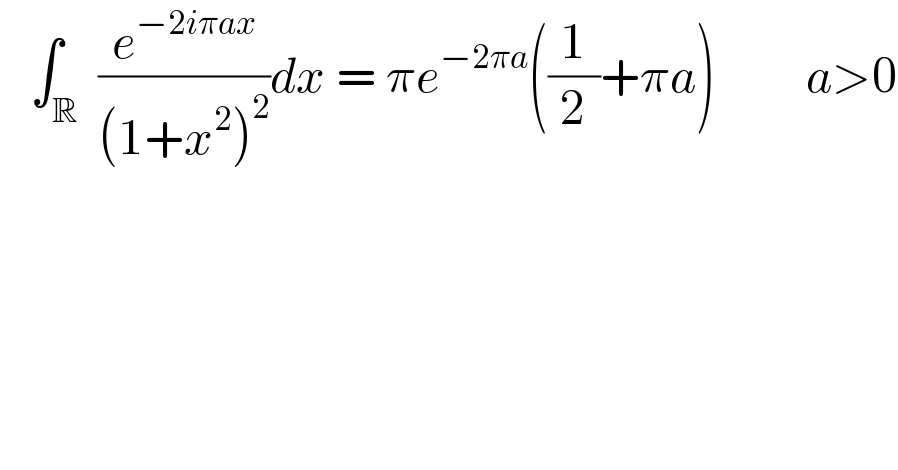Question Number 103820 by ~blr237~ last updated on 17/Jul/20

$$\:\:\:\int_{\mathbb{R}} ^{} \:\frac{{e}^{−\mathrm{2}{i}\pi{ax}} }{\left(\mathrm{1}+{x}^{\mathrm{2}} \right)^{\mathrm{2}} }{dx}\:=\:\pi{e}^{−\mathrm{2}\pi{a}} \left(\frac{\mathrm{1}}{\mathrm{2}}+\pi{a}\right)\:\:\:\:\:\:\:\:\:{a}>\mathrm{0} \\ $$
Answered by mathmax by abdo last updated on 18/Jul/20

$$\mathrm{my}\:\mathrm{answer}\:\mathrm{is}\:\mathrm{correct}\:\mathrm{but}\:\mathrm{i}\:\mathrm{delet}\:\mathrm{the}\:\mathrm{post}…! \\ $$
